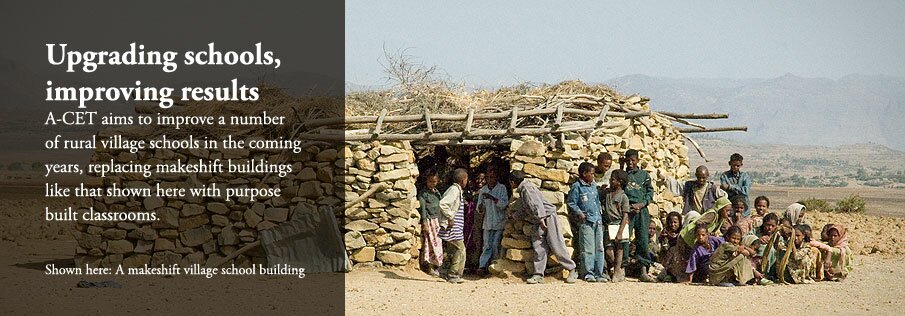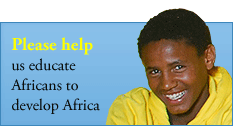

Students
Student stories
Student list
Graduate student interviews
EYES Circus
What our students say
Students


Our Facebook page
Our Twitter page
Follow @ACETcharity
The Role of Education in Breaking the Cycle of Poverty in Ethiopia
In the heart of Africa, a nation with a rich cultural heritage and stunning landscapes faces a formidable challenge - poverty. Ethiopia, a land known for its ancient history and diverse traditions, is grappling with a cycle of poverty that has persisted for generations. But here's the twist: education holds the key to breaking this cycle. In this article, we'll dive into the significance of education in alleviating poverty in Ethiopia and explore the multifaceted aspects of this complex issue.
Understanding Poverty in Ethiopia
In the heart of Ethiopia, a nation with a rich cultural heritage and stunning landscapes grapples with a formidable challenge - poverty. But what does poverty really mean in the Ethiopian context? Before we delve into the transformative power of education, let's first understand the multifaceted nature of poverty in Ethiopia.
- Definition and types of poverty: What exactly is poverty in Ethiopia? Poverty isn't just about a lack of money. It's about limited access to resources, opportunities, and basic needs like food, clean water, and healthcare. Ethiopia experiences various forms of poverty, from income poverty to multidimensional poverty that encompasses health, education, and living standards. The situation is complex, but education can untangle this web.
- Key factors contributing to poverty in Ethiopia: Ethiopia's poverty is influenced by numerous factors, including limited infrastructure, low agricultural productivity, and high unemployment rates. These factors trap people in a vicious cycle, but knowledge can help them break free. By understanding these challenges, we can work towards sustainable solutions.
- The vicious cycle of poverty: Here's a question for you: How does poverty persist through generations? The answer lies in the vicious cycle. Poverty often deprives children of education, and a lack of education limits their job prospects, trapping them in poverty. Education disrupts this cycle. It empowers individuals, creating opportunities for themselves and their families.
Education in Ethiopia
In Ethiopia, education is more than just a means to gain knowledge; it's a beacon of hope for a brighter future. To appreciate the role education plays in breaking the cycle of poverty, it's essential to grasp the historical evolution of the education system in this diverse and dynamic nation.
-
Historical Overview of Education
Ethiopia boasts an ancient history of learning, dating back centuries. Despite these roots, modern education in Ethiopia has faced its own set of challenges and transformations. From traditional 'meketeb' schools to a more structured system, education here has come a long way. But what's the current status of education in Ethiopia, and how accessible is it?
-
Access to Education
Education is a key that should open doors for all, but in Ethiopia, not everyone gets that opportunity. There are urban-rural disparities, financial barriers, and issues of access to quality schools. Let's take a closer look at these challenges and what they mean for the Ethiopian population.
-
Quality of Education
Access to education is essential, but so is the quality of that education. Are Ethiopian students receiving the kind of education that equips them for success? We'll explore the challenges within the education system and discuss ways to improve the quality of learning.
-
Challenges in the Education System
The Ethiopian education system has made significant strides, but it's not without its share of challenges. From inadequate infrastructure to shortages of qualified teachers, the system has room for improvement. How can these hurdles be overcome to provide every Ethiopian with a high-quality education?
The Interplay Between Education and Poverty
Education and poverty are two sides of the same coin. In Ethiopia, they are intrinsically linked in a complex relationship. The quality and accessibility of education can significantly impact the country's economic and social well-being. Let's explore the intricate interplay between education and poverty, uncovering the key factors that contribute to this connection.
- The link between education and economic growth: Education is more than just reading, writing, and arithmetic. It's an investment in the economic prosperity of a nation. We'll delve into how educated citizens can drive economic growth, making it a vital component of poverty reduction.
- Breaking the poverty cycle through education: Education can be the catalyst for change. By empowering individuals with knowledge and skills, we can break the shackles of poverty. We'll explore inspiring case studies and success stories of those who've risen from poverty's grasp through education.
Government Initiatives and Policies
As Ethiopia confronts the challenge of poverty, its government has taken significant steps to promote education as a means of transformation. In this chapter, we'll take a closer look at the various initiatives and policies the Ethiopian government has implemented to enhance access to quality education for all its citizens.
-
Overview of Government Efforts
Ethiopia's government recognizes the power of education in eradicating poverty. We'll look at the initiatives and policies that have been put in place to ensure equitable access to quality education for all Ethiopians.
- Challenges and Progress
While the government's efforts are commendable, they are not without their challenges. From budget constraints to infrastructure issues, we'll discuss the obstacles faced and the progress made in addressing them.
- The Role of International Aid
Ethiopia's journey to break the cycle of poverty is not just a domestic affair. International aid plays a significant role in supplementing the government's efforts. We'll explore how external support contributes to the nation's educational development.
Barriers to Education in Ethiopia
Education should be a right, not a privilege. Yet, in Ethiopia, access to education is often hindered by a series of barriers. Gender disparities, rural-urban divides, and cultural factors play a significant role in determining who gets an education and who doesn't. This chapter will shed light on these barriers and the challenges they pose to the education system.
-
Gender Disparities in Education
In Ethiopia, gender disparities in education are a critical issue. We'll examine the cultural and societal factors that contribute to these disparities and discuss the steps being taken to bridge the gender gap in education.
- Rural vs. Urban Disparities
Access to education isn't uniform across the country. Rural areas face unique challenges, such as a lack of schools and infrastructure. How do these challenges compare to urban areas, and what measures are in place to level the playing field?
- Cultural and Societal Factors
Culture can shape education in profound ways. We'll explore how cultural and societal factors impact education in Ethiopia, shedding light on both the strengths and limitations of these influences.
Innovative Approaches to Education
Traditional classrooms aren't the only avenue for learning in Ethiopia. Innovative approaches, from vocational training to mobile learning, are transforming the educational landscape. In this chapter, we'll explore these creative solutions and their potential to break the cycle of poverty.
- Vocational Training and Skill Development
Education isn't just about textbooks and classrooms. Vocational training and skill development are becoming increasingly vital. We'll discuss how these alternative educational paths are empowering Ethiopian youth.
- Mobile and Distance Learning
In the digital age, education is going beyond traditional classrooms. Mobile and distance learning are transforming how knowledge is acquired and shared. We'll explore these innovative approaches and their potential impact on breaking the poverty cycle.
- Grassroots Initiatives
Sometimes, change starts at the grassroots level. We'll showcase innovative community-driven initiatives that are making a difference in education. These projects are not only inspiring but also creating lasting change.
The Role of Education in Empowering Communities
Education is a powerful catalyst for change. It doesn't just impact individuals; it has a profound effect on entire communities. In this chapter, we'll delve into how education is improving health, creating job opportunities, and fostering cultural development in Ethiopian communities.
- Health and Sanitation Improvements
Education's benefits extend beyond knowledge. It plays a crucial role in improving health and sanitation practices in communities. We'll uncover how education is enhancing the overall well-being of Ethiopians.
-
Entrepreneurship and Job Opportunities
Empowered with education, individuals can unlock opportunities for entrepreneurship and employment. We'll explore how education equips Ethiopians with the skills and knowledge to chart their own path to prosperity.
-
Social and Cultural Development
Education doesn't just change economic circumstances; it transforms societies and cultures. We'll examine how education is fostering social development and preserving Ethiopia's rich cultural heritage.
Challenges and Future Prospects
While education is a beacon of hope, it's not without its challenges. Ethiopia's journey to break the cycle of poverty is filled with obstacles that must be overcome. In this chapter, we'll discuss these ongoing challenges and look ahead to the future, exploring potential solutions and prospects for a more prosperous Ethiopia.
- Ongoing challenges in education: Even as Ethiopia makes strides in education, challenges persist. From resource constraints to curriculum development, we'll explore the hurdles that must be overcome for a brighter educational future.
- Future prospects and potential solutions: The future holds promise. We'll discuss potential solutions and prospects for education in Ethiopia, offering hope for a prosperous nation where education is the beacon of light.
Conclusion
We've journeyed through the intricate relationship between education and poverty in Ethiopia. From understanding the types of poverty to exploring the challenges within the education system, you now grasp the significance of this dynamic connection.
Education in Ethiopia isn't just a matter of classrooms and textbooks. It's a story of hope, resilience, and determination. It's a testament to the fact that knowledge, when harnessed effectively, has the power to break the chains of poverty and pave the way for a brighter and more prosperous Ethiopia. Let's continue to support this transformation, for education is the beacon of hope that can lead Ethiopia towards a better future.
Donate
Please help us educate Ethiopian children
Education brings with it the best chance of defeating poverty, better parenting, better health, better nutrition, greater opportunity and a direct line to economic growth. Please help us educate Ethiopians to develop Ethiopia. Your donation will be used wisely and efficiently. Use the form below to donate via PayPal, or click on one of the buttons on the right for other options.


















